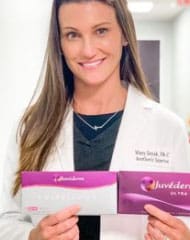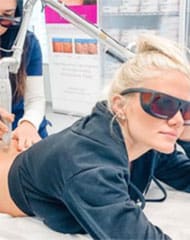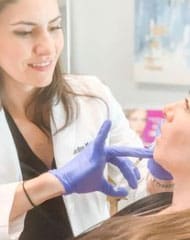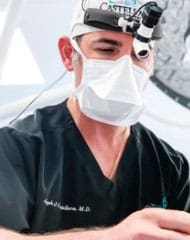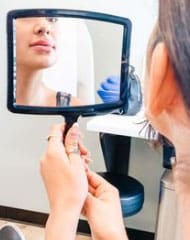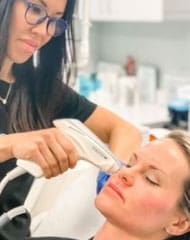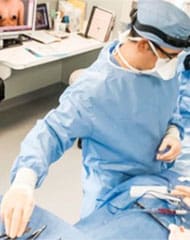Plastic surgery and cosmetic surgery are often used interchangeably, which can lead people to wonder if there’s any difference between the two. Although plastic surgery and cosmetic surgery have areas of overlap, they are not the same.
In the broadest sense, both cosmetic and plastic surgery share the common goal of improving a person’s face or body. However, the techniques and procedures that informs a cosmetic surgeon’s work is distinct from a plastic surgeon’s training and experience.
To request a consultation with one of our skilled cosmetic surgeons, contact us online today.
Cosmetic Surgery Enhances Appearance
Cosmetic surgery is an elective procedure intended to enhance your natural features and bring out the best in your face, breasts or body. Men and women who want to improve their appearance with any number of procedures opt for cosmetic surgery. If your goal is to enhance your appearance with elective surgery, you most likely want to find a cosmetic surgeon.
Top cosmetic surgery procedures include:
Plastic Surgery Restores Functionality
Plastic surgery repairs parts of the body or face that have been injured or are disfigured as a result of birth defects, trauma or disease. Dedicated to correcting the parts of the body or face that don’t work properly, plastic surgery primarily focuses on physical reconstruction.
Examples of plastic surgery procedures include:
- Breast reconstruction after cancer
- Hand surgery
- Scar revision surgery
- Burn repair
The Difference in Medical Training
Doctors from a variety of medical fields practice cosmetic surgery, including plastic surgeons. However, the foundation of a plastic surgeon’s surgical training is reconstructive, while a cosmetic surgeon’s entire surgical training is dedicated to cosmetic surgery.
Cosmetic Surgery
After medical school, all doctors must go on to do a 3- to 5-year residency program. During a residency in cosmetic surgery, a cosmetic surgeon receives extensive training in each of the following categories: breast surgery, face surgery, tummy tuck, liposuction and other cosmetic surgeries.
After residency, in order to become certified by the American Board of Cosmetic Surgery, cosmetic surgeons complete a 1 or 2-year fellowship program in cosmetic surgery. The fellowship offers comprehensive training in all cosmetic surgery procedures of the body, face and breasts, as well as non-surgical cosmetic treatments. During the fellowship, a cosmetic surgeon must perform at least 300 cosmetic surgery cases. The majority of cosmetic surgeons far exceeds this number by the time they complete their fellowship.
Plastic Surgery
The American Board of Plastic Surgery has 6 categories for residency training requirements: hand surgery, reconstructive surgery, trauma surgery, disorders, congenital defect repair and cosmetic surgery. The field of cosmetic surgery is just a small portion of a plastic surgeon’s overall training during their residency. Board-certified plastic surgeons must complete a general surgical residency followed by a 2-year post-graduate residency program. During the post-grad residency, a plastic surgeon may study some cosmetic surgery, but they certainly don’t receive training on every cosmetic procedure.
A board-certified plastic surgeon definitely receives extensive training, but that doesn’t mean they’ll have very much experience in cosmetic surgery. This is because the residency training that’s necessary to receive board certification doesn’t include a comprehensive study of all cosmetic surgery procedures.
Adding Up the Differences
There’s no doubt that both cosmetic surgeons and plastic surgeons are highly trained. However, it’s the difference in training that you want to pay close attention to. Any licensed physician, including a plastic surgeon, is allowed to perform cosmetic surgery. However, it’s not a good idea to have cosmetic surgery done by someone who doesn’t have the right credentials or experience.
If your goal is to enhance your aesthetic appeal through elective surgery, take some time to learn about your cosmetic surgeon’s education and background. Consider your cosmetic surgeon’s residency, fellowship experience and any specialized training that he or she may have.
To learn more about the benefits of plastic surgery and the importance of choosing a board-certified cosmetic surgeon, please request a consultation or call our Tampa-St. Petersburg cosmetic surgery practice at 813-872-6093 today.


